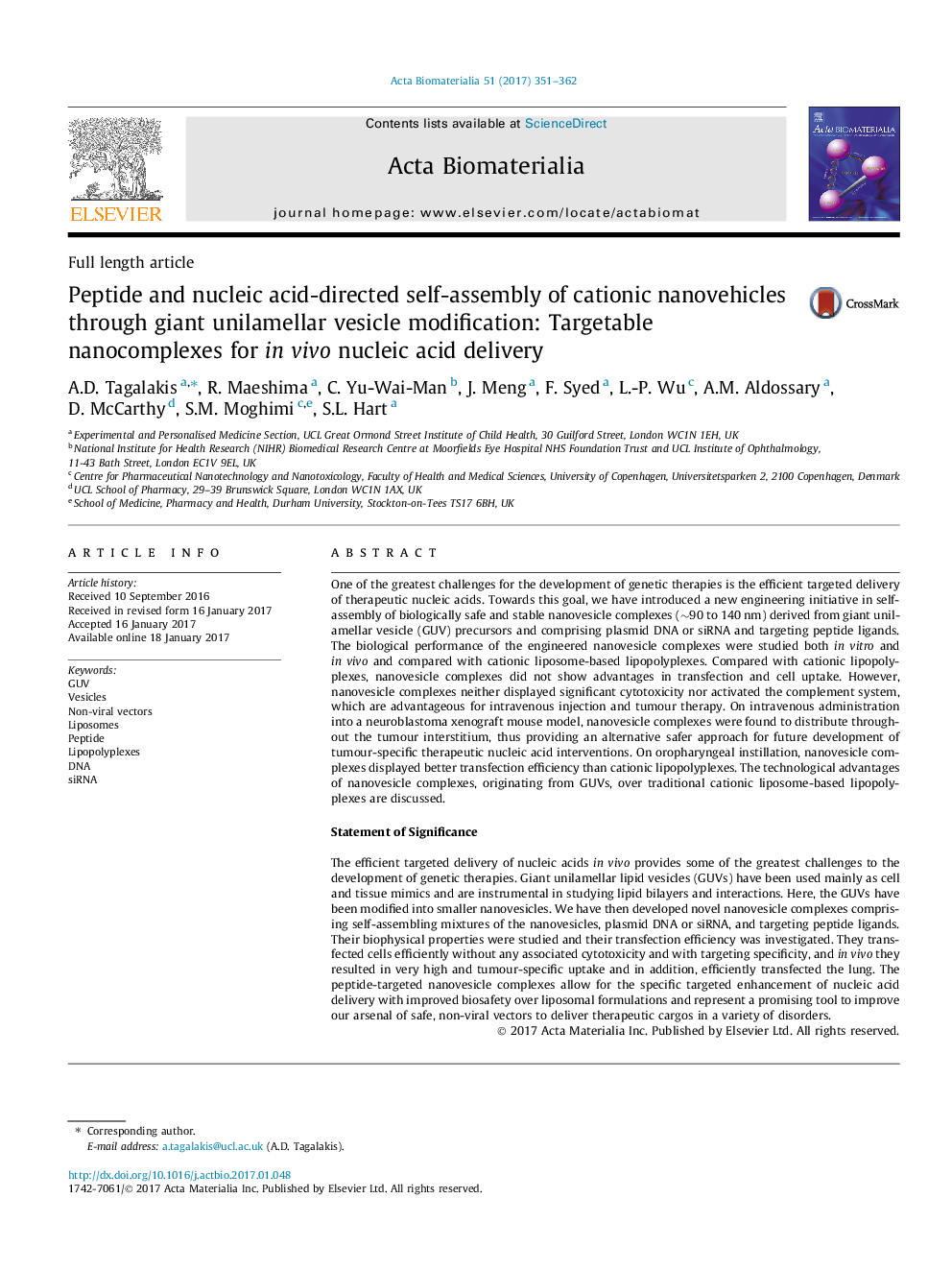| کد مقاله | کد نشریه | سال انتشار | مقاله انگلیسی | نسخه تمام متن |
|---|---|---|---|---|
| 6449501 | 1415935 | 2017 | 12 صفحه PDF | دانلود رایگان |

One of the greatest challenges for the development of genetic therapies is the efficient targeted delivery of therapeutic nucleic acids. Towards this goal, we have introduced a new engineering initiative in self-assembly of biologically safe and stable nanovesicle complexes (â¼90 to 140Â nm) derived from giant unilamellar vesicle (GUV) precursors and comprising plasmid DNA or siRNA and targeting peptide ligands. The biological performance of the engineered nanovesicle complexes were studied both in vitro and in vivo and compared with cationic liposome-based lipopolyplexes. Compared with cationic lipopolyplexes, nanovesicle complexes did not show advantages in transfection and cell uptake. However, nanovesicle complexes neither displayed significant cytotoxicity nor activated the complement system, which are advantageous for intravenous injection and tumour therapy. On intravenous administration into a neuroblastoma xenograft mouse model, nanovesicle complexes were found to distribute throughout the tumour interstitium, thus providing an alternative safer approach for future development of tumour-specific therapeutic nucleic acid interventions. On oropharyngeal instillation, nanovesicle complexes displayed better transfection efficiency than cationic lipopolyplexes. The technological advantages of nanovesicle complexes, originating from GUVs, over traditional cationic liposome-based lipopolyplexes are discussed.Statement of SignificanceThe efficient targeted delivery of nucleic acids in vivo provides some of the greatest challenges to the development of genetic therapies. Giant unilamellar lipid vesicles (GUVs) have been used mainly as cell and tissue mimics and are instrumental in studying lipid bilayers and interactions. Here, the GUVs have been modified into smaller nanovesicles. We have then developed novel nanovesicle complexes comprising self-assembling mixtures of the nanovesicles, plasmid DNA or siRNA, and targeting peptide ligands. Their biophysical properties were studied and their transfection efficiency was investigated. They transfected cells efficiently without any associated cytotoxicity and with targeting specificity, and in vivo they resulted in very high and tumour-specific uptake and in addition, efficiently transfected the lung. The peptide-targeted nanovesicle complexes allow for the specific targeted enhancement of nucleic acid delivery with improved biosafety over liposomal formulations and represent a promising tool to improve our arsenal of safe, non-viral vectors to deliver therapeutic cargos in a variety of disorders.
108
Journal: Acta Biomaterialia - Volume 51, 15 March 2017, Pages 351-362